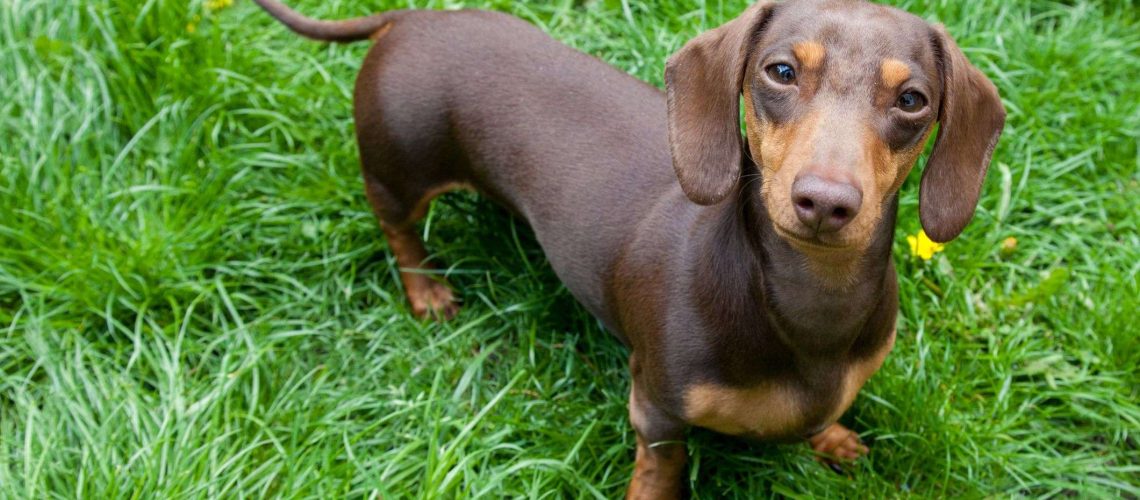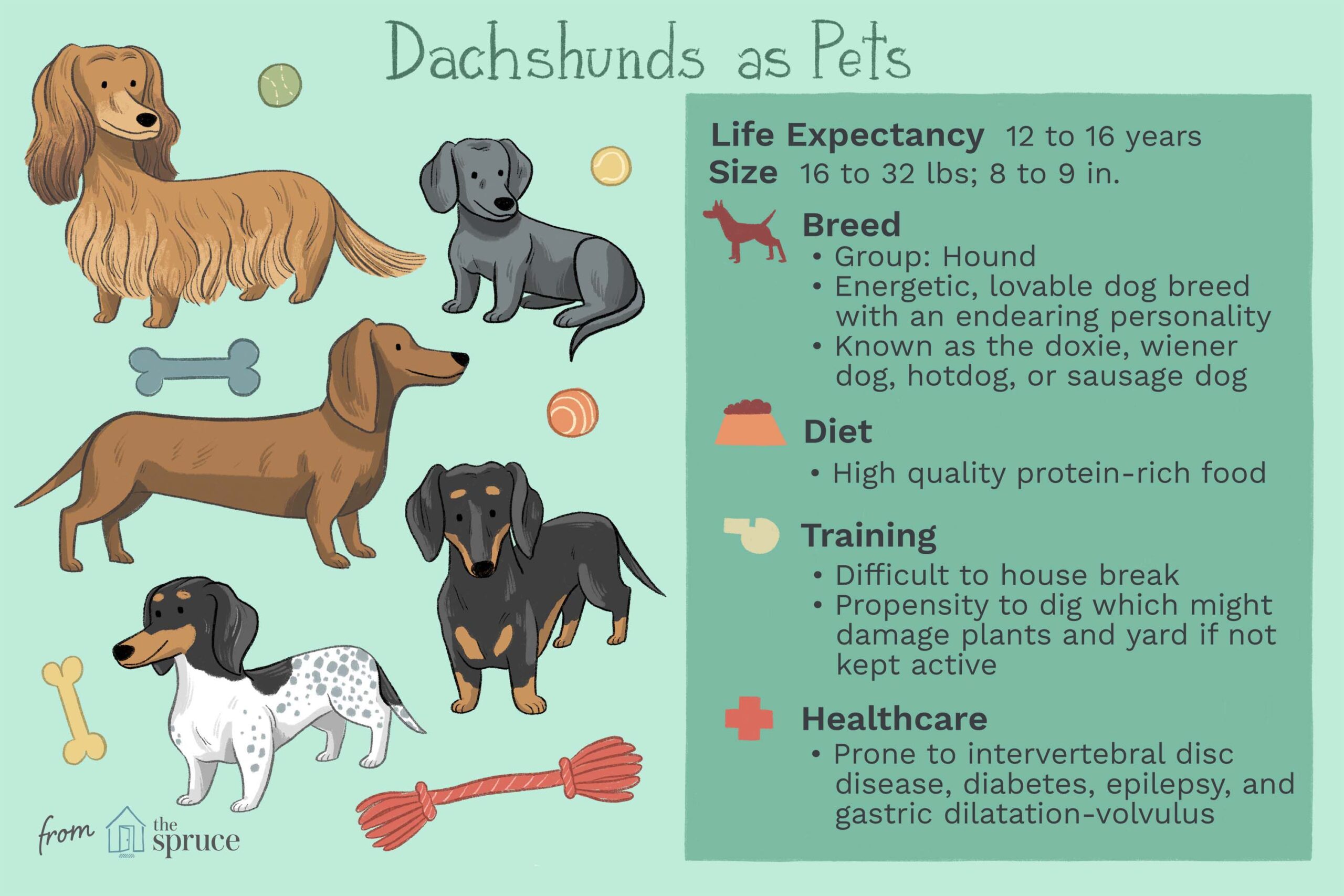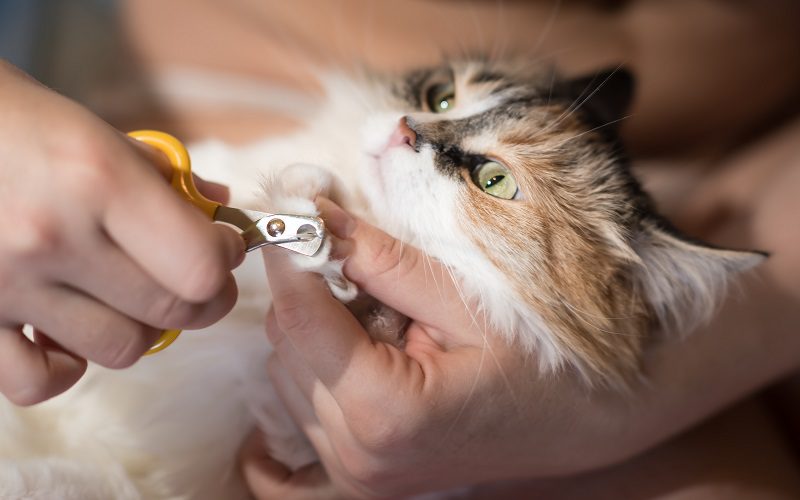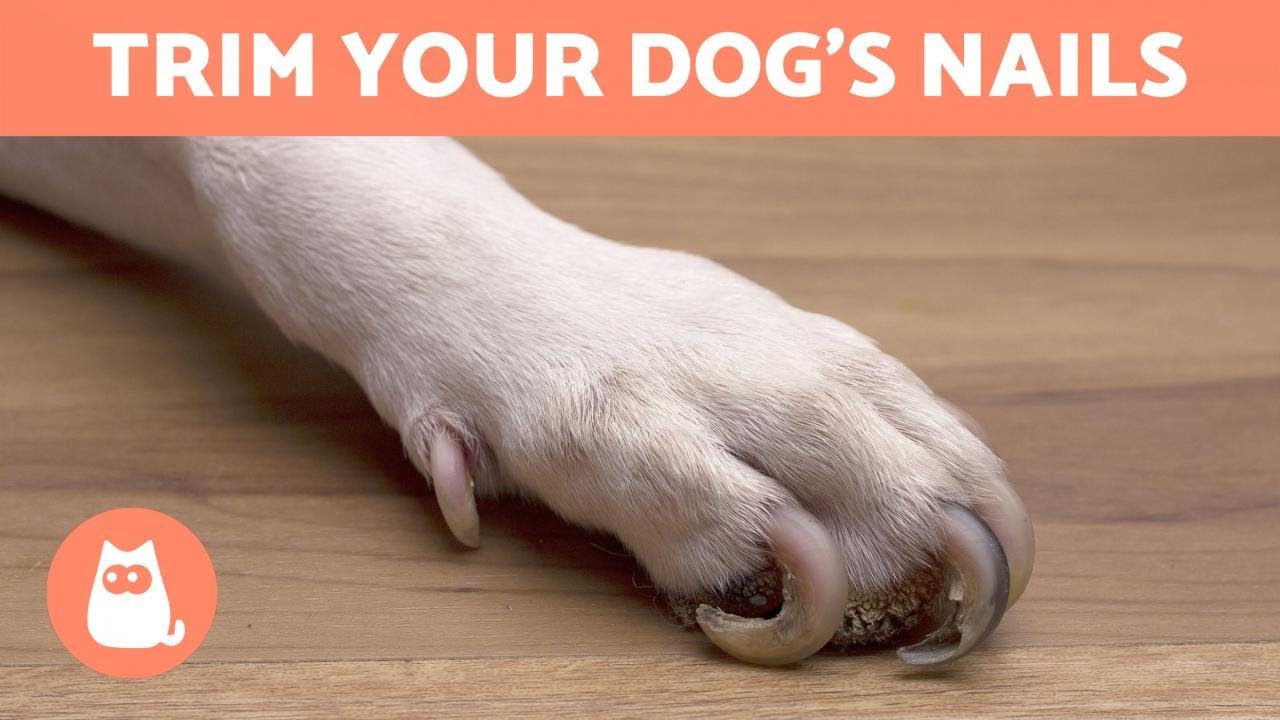Key Takeaways:
- Dachshunds are a small breed known for their long bodies and short legs.
- They have a friendly and playful temperament, making them great family pets.
- Dachshunds require regular exercise to prevent obesity and maintain their overall health.
- Due to their elongated backs, Dachshunds are prone to back problems and should be handled with care.
- Proper grooming is essential for Dachshunds, including regular brushing and nail trimming.
Are you ready to embark on an adventure into the world of adorable and fascinating dogs? If so, get ready to discover the delightful Dachshund, also known as the Doxie. This captivating breed is sure to capture your heart with its unique characteristics and playful nature. Understanding this topic is essential because it not only provides valuable insights into caring for these lovable creatures but also allows us to appreciate their historical significance. So, let's dive into the world of Dachshunds and uncover the secrets behind their charm and care. Get ready for a journey filled with wagging tails, floppy ears, and endless joy!
What is a Dachshund and what makes them special?
Dachshunds, also known as wiener dogs or sausage dogs, are a small breed of dog that was originally bred in Germany. They have a long body, short legs, and floppy ears. One thing that makes Dachshunds special is their unique shape. Their long bodies and short legs were specifically bred for hunting badgers and other burrowing animals. This shape allows them to easily fit into tunnels and dig underground.
Another thing that sets Dachshunds apart is their friendly and outgoing personality. They are known for being loyal and affectionate towards their owners. Dachshunds are also very smart and can be trained easily if you start at a young age. They love to play and enjoy being the center of attention.
Overall, Dachshunds make great companions for individuals or families who are looking for a small but energetic dog with lots of personality.
Fun Facts about Dachshunds:
- The word "Dachshund" means "badger dog" in German.
- There are six different coat varieties: smooth, wirehaired, longhaired, black & tan, chocolate & tan, and dapple.
- Dachshunds have an excellent sense of smell which makes them good at tracking scents.
- They were originally bred to hunt badgers but are now more commonly kept as pets.
- Famous people like Pablo Picasso and John F. Kennedy owned Dachshunds.
Here's an illustration of the different coat varieties:
```mermaid
graph LR
A[Smooth Coat] --> B[Wirehaired Coat]
A --> C[Longhaired Coat]
B --> E[Black & Tan]
B --> F[Chocolate & Tan]
C --> G[Dapple]
```
How long do Dachshunds live and what health issues do they have?
Dachshunds typically have a lifespan of 12 to 16 years. However, it's important to note that individual dogs may vary. To ensure your Dachshund lives a long and healthy life, it's crucial to be aware of potential health issues they may face. One common health concern for Dachshunds is intervertebral disc disease (IVDD), which affects their spinal discs and can cause pain or even paralysis. Regular exercise, maintaining a healthy weight, and avoiding activities that put excessive strain on their back can help reduce the risk of IVDD. Additionally, Dachshunds are prone to obesity, so it's essential to provide them with a balanced diet and monitor their food intake.
Other health issues that Dachshunds may experience include dental problems, such as periodontal disease, which can be prevented through regular teeth brushing and dental check-ups. They are also susceptible to eye conditions like progressive retinal atrophy (PRA) and cataracts. Regular visits to the veterinarian can help detect these issues early on and prevent further complications. Overall, providing proper care, regular vet check-ups, and addressing any health concerns promptly will contribute to a longer and healthier life for your Dachshund.
Grooming and care tips for keeping your Dachshund healthy
Grooming plays an essential role in maintaining the overall health and well-being of your Dachshund. Their short coats require minimal grooming compared to some other breeds. However, regular brushing helps remove loose hair and keeps their coat shiny. It's also important to trim their nails regularly to prevent discomfort or injury.
Dental care is crucial for Dachshunds as they are prone to dental problems. Brushing their teeth at least two to three times a week using a dog-friendly toothpaste and toothbrush can help prevent plaque buildup and gum disease. Additionally, regular ear cleaning is necessary to prevent infections. Use a gentle ear cleaning solution recommended by your veterinarian and gently wipe the outer part of their ears with a cotton ball.
To keep your Dachshund healthy, provide them with a balanced diet that meets their nutritional needs. Avoid overfeeding to prevent obesity, which can lead to various health issues. Regular exercise is also important for their physical and mental well-being. Daily walks and playtime not only help maintain their weight but also provide mental stimulation.
Are Dachshunds good with kids and other pets?
Dachshunds are known for their friendly and affectionate nature, making them generally good companions for kids. However, it's crucial to supervise interactions between young children and Dachshunds to ensure both parties are safe. Teach children how to properly handle and interact with dogs, emphasizing the importance of being gentle and respectful.
When it comes to other pets, Dachshunds can get along well with them if properly socialized from an early age. Introduce your Dachshund to other pets gradually, allowing them time to adjust and become familiar with each other's presence. Supervise initial interactions until you are confident that they can coexist peacefully.
It's important to note that each dog has its own personality, so individual temperament may vary. Some Dachshunds may be more tolerant or playful than others. Early socialization, positive reinforcement training, and providing plenty of opportunities for interaction can help ensure a harmonious relationship between your Dachshund, kids, and other pets in the household.
Exercise needs for Dachshunds: walking and playtime
Dachshunds may have short legs, but they still require regular exercise to stay healthy and happy. Daily walks are essential for them to burn off energy and maintain a healthy weight. Aim for at least 30 minutes of brisk walking per day, divided into shorter sessions if needed.
In addition to walks, Dachshunds also enjoy playtime. Engage them in interactive games such as fetch or hide-and-seek to stimulate their minds and keep them physically active. Puzzle toys can provide mental stimulation and prevent boredom.
It's important to note that Dachshunds have a tendency to overexert themselves, which can put strain on their backs. Avoid activities that involve jumping from heights or excessive running on hard surfaces, as these can increase the risk of spinal injuries. Always supervise their playtime and ensure they have access to shaded areas and water during hot weather.
Different types of Dachshund coats and how to care for them
Dachshunds come in three coat varieties: smooth, wirehaired, and longhaired. Each type requires specific grooming care.
Smooth-coated Dachshunds have short, sleek fur that is easy to maintain. Regular brushing with a soft bristle brush helps remove loose hair and keeps their coat shiny. Wirehaired Dachshunds have a coarse outer coat with a dense undercoat. They require more frequent brushing using a slicker brush or comb to prevent matting. Hand-stripping may also be necessary occasionally to maintain the texture of their wiry coat.
Longhaired Dachshunds have silky fur that requires more extensive grooming. Daily brushing is recommended to prevent tangles and mats from forming. Pay extra attention to areas like behind the ears, armpits, and belly where knots are more likely to occur. Trimming the hair around their paws can help keep them clean.
Regardless of the coat type, regular bathing is essential for hygiene purposes. Use a mild dog shampoo specifically formulated for their skin type and avoid over-bathing, as it can strip their coat of natural oils. Additionally, check their ears regularly for any signs of infection and clean them using a veterinarian-recommended ear cleaning solution.
Important considerations before getting a Dachshund as a pet
Before bringing a Dachshund into your home, there are several important factors to consider. Firstly, Dachshunds are known for their strong-willed nature, which can make training challenging at times. Patience, consistency, and positive reinforcement techniques are key to successfully training a Dachshund.
Another consideration is their tendency to bark. Dachshunds have a strong instinct to alert their owners of any perceived threats or strangers. If you live in an apartment or have close neighbors, this excessive barking may cause issues. Proper socialization and training from an early age can help minimize excessive barking behavior.
Dachshunds also have a high prey drive due to their hunting background. This means they may be prone to chasing small animals or even digging in the yard. Ensuring they have a secure and fenced-in area to play in can help prevent any escape attempts or unwanted behaviors.
Lastly, Dachshunds thrive on human companionship and can suffer from separation anxiety if left alone for long periods. They require plenty of attention and mental stimulation to prevent boredom and destructive behaviors. If you work long hours or travel frequently, it's important to consider whether you can provide the necessary time and attention that a Dachshund needs.
By carefully considering these factors and being prepared for the responsibilities of owning a Dachshund, you can ensure that this unique breed becomes a beloved member of your family.
In conclusion, Dachshunds are a unique and adorable breed of dogs. They have long bodies, short legs, and a friendly personality. Taking care of them involves regular exercise, proper grooming, and lots of love and attention.
Are Dachshunds high maintenance?
Because they are small in size, Dachshunds are often seen as one of the easiest dog breeds to care for. They don't shed much, so there is minimal grooming required, and they don't need a lot of exercise due to their small bodies not being built for intense running or jumping.
Are Dachshunds good house dogs?
Dachshunds are lively and sociable dogs that are ideal for individuals who are new to owning pets. They are suitable for living in apartments and small houses, although they do have a tendency to bark frequently. Dachshunds are highly social and do not thrive as outdoor dogs; they prefer to be indoors with their human companions and be treated as part of the family.
Are Dachshunds hard to potty train?
Dachshunds are known for being particularly challenging to train when it comes to housebreaking. In fact, they are considered one of the top 20 most difficult breeds to housebreak. Therefore, it is important to start their training early in order to avoid unwanted accidents and surprises in the future.
What is the personality of a Dachshund?
The Dachshund is known for its intelligence, energy, and bravery, often showing a lack of caution. They are bred to be determined, which also means they can be stubborn. Dachshunds are known for being entertaining and fearless, but their greatest desire is to snuggle with their owners.
What are the cons of Dachshunds?
Due to their elongated spines, Dachshunds are more susceptible to spinal disc damage and other back-related problems. Being overweight can exacerbate these issues, so while these dogs don't require excessive exercise, it is crucial to maintain a healthy weight for them.
Do mini Dachshunds bark a lot?
Dachshunds were originally bred as hunting dogs, so it is natural for them to bark. Despite their small size, their bark can be quite loud. Additionally, Dachshunds are often sensitive to changes in their surroundings, which can lead to excessive barking.

















